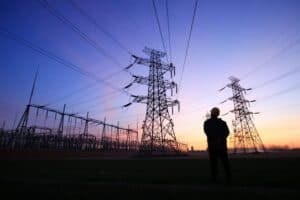An impending energy disaster looms over South Africa as the country faces a severe natural gas shortage.

An energy disaster that will hit South Africa more violently than load shedding’s slow burn is on the cards.
If steps are not taken within the next four months to resolve the pending natural gas shortage, much of the country’s remaining industry will simply cease to exist in 2026, when the pipes run dry.
It’s almost too late, said chief executive of the Industrial Gas Users Association Jaco Human, because when the taps run dry it could spell economic catastrophe.
Sasol’s sole supply
Sasol is the sole supplier of the crucial commodity.
The company extracts natural gas from its plant in Mozambique. It invested in the facility in the early 2000s, but as with all natural resources, the source is maturing and will run out.
The company warned of the slowdown and ultimate end to supply several years ago, said spokesperson Alex Anderson.
ALSO READ: Egoli Gas urge Kensington residents to make switch to LPG gas
“We disclosed years ago of the gas fields maturing and there’s natural decline [in supply], as with all hydrocarbon sources and fields,” he said.
“We are looking for additional gas sources in Mozambique, we have licences there already.”
Sasol is also committed to using the dwindling gas supply on its own operations rather than supplying industrial customers in order to meet its commitments to decarbonisation and lowering its CO2 emissions. But it does not solve the pending crisis.
“This is a hard stop. It’s not a decline like we have seen with electricity over past 16 years. This is a sudden stop coming at us in June 2026,” Human said. “If nothing is done about it, it will cause an energy crisis.”
Government inaction
Human said his association and other key role players have been trying to coax government into action since 2018.
“Despite years of warnings and discussions, any tangible progress with government remains elusive, adding fuel to an environment of uncertainty and compromising economic stability,” said Human.
ALSO READ: Flamboyant ‘political operator’ Lawrence Mulaudzi scores Petro SA gas tender…What to know
The potential fallout of a gas supply disruption stretches across every aspect of SA’s industrial economy.
“The gas users in South Africa are varied across all manufacturing activities,” Human said, listing several key industries, including primary manufacturing sectors like steel, brick making, glass, ceramics and aluminium.
“These industries rely heavily on natural gas for their energy needs, making them particularly vulnerable to supply challenges.”
He also cautioned about risks to the fast-moving consumer goods sector, where large companies depend on natural gas for activities such as baking bread and producing beverages.
“The automotive industry is also at risk, as many components are manufactured using natural gas as an energy source.
“The potential impact on South Africa’s export capabilities will also be severe,” he added.
ALSO READ: Illegal oil dumping behind unbearable smell in Centurion
Presently, there is no straightforward path to recovery in sight.
Job losses loom
The potential for widespread job losses and industrial shutdowns is a looming disaster, Human said. There is no alternative to natural gas.
SA is dependent on the import of liquefied natural gas (LNG) due to the lack of domestic gas reserves.
“And there is a critical gap in the existing infrastructure required to import, process and distribute LNG,” he said.
So, when Sasol runs out, SA does, too.
Human dismissed the practicality and viability of options such as liquefied petroleum gas (LPG), diesel or electricity, citing infrastructural limitations, Eskom’s inability to service the country as it is and cost barriers.
ALSO READ: Boksburg explosion: A year later, unanswered questions linger
LPG would have to be imported in vast quantities.
“There are no technical and economical alternatives to the natural gas-generated energy that is required.”
But South African industry does not use enough gas to make massive infrastructure spend viable, either.
It places manufacturing and the wellness of the economy between a rock and a hard place.
Call to action
Part of what Human and other role players are lobbying for to save the bigger economic picture is for government and players like Eskom to switch to gas-powered electricity generation, with speed.
This will significantly impact demand for LNG and thus even out the economics of a plan B.
ALSO READ: Natural gas riches to fuel Mozambique sovereign wealth fund
“With the government currently unable to finance these projects, the onus now falls on the private sector, which necessitates a robust business case predicated on substantial and sustained gas demand,” said Human.
“We must find a way to collaborate on developing and implementing sustainable solutions before it’s too late.”






